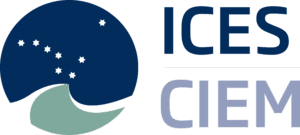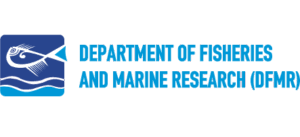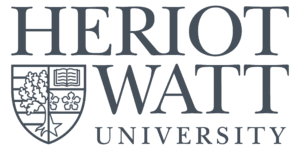With 16 partners across research, industry and policy, MeCCAM supports a more climate-resilient and sustainable fisheries sector. Learn more about them:
![]()
Country: Faroe Islands
Website: https://blueresource.fo/
Description: Sjókovin is a private, independent, not-for-profit research centre based in the Faroe Islands. Our vision is to foster sustainable development and innovation in fisheries and aquaculture. Our team offers strong expertise in socio-economic impact assessment, resource management, risk assessment, value chain and market analysis, and policy and governance analysis. Through active participation in international research projects, we collaborate closely with research and industry partners across Europe, facilitating knowledge exchange to and from the Faroe Islands.
Role in Project: Project coordinator
![]()
Country: Iceland
Website: https://matis.is/en/
Description: Matís supports value creation, public health and food safety in strong collaboration with a large group of partners, both from the public and private sectors, domestic and foreign. Through research projects, which are the largest part of our operations, we work on large and diverse challenges with our partners.
Role in Project: Leading CS4, WP4, T6.5 and T7.5
![]()
Country: Norway
Website: Nofima – A leading institute for applied research within fisheries, aquaculture and food.
Description: The Norwegian food research institute Nofima provides research-based knowledge and innovations for actors in all parts of the food systems.
Role in Project:

Country: Norway
Website: https://en.uit.no/startsida
Description: UiT The Arctic University of Norway is a medium-sized research university that contributes to knowledge-based development at the regional, national and international level. UiT The Arctic University of Norway is the northernmost university of the world. Its location on the edge of the Arctic implies a mission. The Arctic is of increasing global importance. Climate change, the exploitation of Arctic resources and environmental threats are topics of great public concern, and which the University of Tromsø takes special interest in.
Role in Project: WP5 leader, Work in WP 1, WP2, WP3, WP6, WP7, WP8

Country: Spain
Website: https://www.iim.csic.es/
Description:The Spanish National Research Council (CSIC) is a Spanish state agency dedicated to scientific and technological research and development. It is the largest public research institution in Spain and a prominent organization within the European Research Area. The CSIC’s primary mission is to generate knowledge through scientific and technical research, transfer research results, provide expert advice, offer training, promote scientific culture, manage research facilities, represent Spain in international bodies, and conduct targeted research.
Role in Project: WP2 leader. CS3 Leader. Work in WP1, 2, 3, 5 & 6.

Country: Denmark
Website: https://www.ices.dk
Description:
The International Council for the Exploration of the Sea (ICES) is an intergovernmental marine science organization, meeting societal needs for impartial evidence on the state and sustainable use of our seas and oceans.
Our goal is to advance and share scientific understanding of marine ecosystems and the services they provide and to use this knowledge to generate state-of-the-art advice for meeting conservation, management, and sustainability goals.
Role in Project: WP6 Lead

Country: Germany
Website: https://submariner-network.eu
Description: The SUBMARINER Network is a unique platform that brings actors from the whole Baltic Sea Region together to actively promote innovative and sustainable uses of marine resources. It operates across the whole knowledge triangle – research, education, and innovation – integrating perspectives from a local to an international scale, different scientific disciplines as well as policy and economic stakeholders.
Role in Project:WP 7 lead, SUBMARINER is responsible for leading the communication and dissemination activities including stakeholder engagement and co-creation events on local case study level.

Country: Cyprus
Website: http://www.moa.gov.cy/moa/dfmr/dfmr.nsf
Description: The Department of Fisheries and Marine Research (DFMR), under the Ministry of Agriculture, Rural Development and Environment of the Republic of Cyprus, was established in 1964 to support fisheries development and sustainable marine resource use. Renamed in 2000, DFMR today focuses on the integrated scientific management of fisheries, aquaculture, and marine ecosystems. Its mission is to promote sustainable practices in these sectors while safeguarding marine biodiversity, with a vision of achieving economic and social growth within a clean and productive marine environment. The Department is structured into five main divisions: the Marine Environment Division, which implements EU environmental directives and oversees marine habitat protection; the Aquaculture Division, which operates two research stations—Cyprus Marine Aquaculture Research Center (CyMARC) in Meneou and the Freshwater Aquaculture Station in Kalopanayiotis. CyMARC not only pioneers aquaculture R&D, particularly in species such as amberjack, meagre, and octopus, but also serves as the national Sea Turtle First Aid, Rescue and Rehabilitation Centre, caring for injured green and loggerhead turtles before their release. The Fisheries Resources Division manages data collection, economic analysis, and policy support; the Fisheries Control and Structures Division enforces legislation and manages key infrastructure; and the Fishing Shelters and Publicity Division supports fishers and public engagement. DFMR also operates a Naval Service for enforcement and marine operations. With its headquarters in Nicosia and district offices across Paphos, Limassol, Larnaca, Paralimni, and Latsi, DFMR leads Cyprus’s marine conservation and fisheries strategy. Core activities include marine environmental monitoring, turtle and monk seal conservation, Posidonia habitat protection, fish stock assessments, and aquaculture innovation. DFMR is the national authority for marine oil spill and hazardous substance response, maintains the National Contingency Plan, and acts as the managing authority for the European Maritime Fisheries and Aquaculture Fund (EMFAF), administering national programmes for coastal and fisheries development.
Role in Project: Involved in WP1, Case Study 5 Leader, Case Study 6

Country: United Kingdom
Website: https://www.hw.ac.uk/research-enterprise/global/sustaining-our-earth-and-oceans/the-lyell-centre
Description: The Lyell Centre for Earth and Marine Sciences and Technology, one of four global research institutes at Heriot-Watt University, brings together expertise in Earth and marine sciences with cutting-edge technologies to address global challenges confronting the planet, nature and people. As a leading centre in these fields, we strengthen Scotland’s research base and contribute to its innovation strategy through socially and industrially relevant research.
Role in Project: Leading WP1 and CS2 North Sea

Country: United Kingdom
Website: Marine Directorate – gov.scot
Description: The Scottish Government’s Marine Directorate is a directorate of the Scottish Government responsible for managing Scotland’s seas and freshwater fisheries along with delivery partners NatureScot and the Scottish Environment Protection Agency. The Marine Directorate plays an integral part in supporting the Scottish Government’s vision of marine and coastal environments that are clean, healthy, safe, productive, biologically diverse and are managed to meet the long-term needs of both nature and people.
Role in Project: Involved in WP1, 5, 7 plus CS1and CS2
![]()
Country: Greece
Website: www.aua.gr
Description: The Agricultural University of Athens (AUA) offers high-level undergraduate and postgraduate Education and Research in Agricultural Science, and its vision is to achieve Educational and Research Excellence so as to occupy a dynamic position in the international academic environment.
True to its traditional role of responding to the productive and developmental needs of the Greek economy and society, the AUA intervenes and develops in line with the development and orientation of modern education and science. Moreover, it is in continuous contact with society so as to make proposals and provide solutions to problems that arise within the agri-nutrition sector.
Role in Project: As co-leader of Case Study 6 (Greece), AUA is responsible for the implementation of targeted activities that aim to address critical climate-related challenges in small-scale fisheries (SSF), particularly those linked to the presence of invasive species and inefficient supply chains. The Greek case study focuses on the impacts of climate change on SSF communities, including the proliferation of the toxic silver-cheeked toadfish, and explores innovative mitigation and adaptation strategies to increase sectoral resilience. Within this framework, AUA coordinates several field-level interventions such as mapping seafood supply chain inefficiencies, promoting the consumption of edible non-indigenous species (NIS), and evaluating alternative scenarios for non-edible ones, in line with circular economy principles.
Beyond its responsibilities at the case study level, AUA leads Task 3.7 in Work Package 3, which focuses on the optimisation of fisheries supply chains in Greece, Cyprus, and Iceland. This task involves mapping critical nodes in the supply chain that are vulnerable to climate-related disruptions, assessing environmental and socio-economic inefficiencies, and integrating circular economy strategies to minimise waste and reduce emissions. AUA also contributes to the assessment of the socio-economic and environmental efficacy of developed solutions under Work Package 4 and participates in developing policy recommendations and training activities.